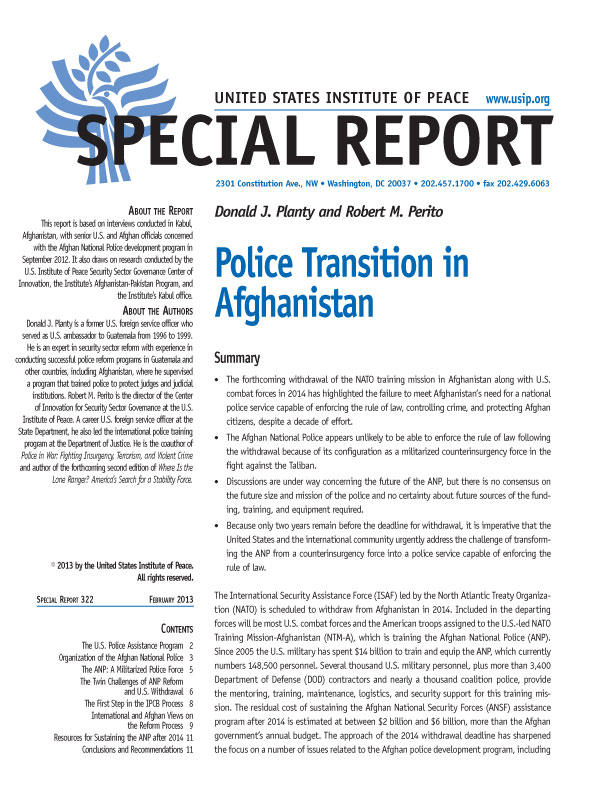The Afghan National Police is a militarized force that has been trained and equipped to conduct counterinsurgency operations and not law enforcement. Before the withdrawal of NATO and U.S. forces, two years remain in which to help the ANP transform into a police service capable of enforcing the rule of law.

Summary
- The forthcoming withdrawal of the NATO training mission in Afghanistan along with U.S. combat forces in 2014 has highlighted the failure to meet Afghanistan’s need for a national police service capable of enforcing the rule of law, controlling crime, and protecting Afghan citizens, despite a decade of effort.
- The Afghan National Police appears unlikely to be able to enforce the rule of law following the withdrawal because of its configuration as a militarized counterinsurgency force in the fight against the Taliban.
- Discussions are under way concerning the future of the ANP, but there is no consensus on the future size and mission of the police and no certainty about future sources of the funding, training, and equipment required.
- Because only two years remain before the deadline for withdrawal, it is imperative that the United States and the international community urgently address the challenge of transforming the ANP from a counterinsurgency force into a police service capable of enforcing the rule of law.
About the Report
This report is based on interviews conducted in Kabul, Afghanistan, with senior U.S. and Afghan officials concerned with the Afghan National Police development program in September 2012. It also draws on research conducted by the U.S. Institute of Peace Security Sector Governance Center of Innovation, the Institute’s Afghanistan-Pakistan Program, and the Institute’s Kabul office.
About the Authors
Donald J. Planty is a former U.S. foreign service officer who served as U.S. ambassador to Guatemala from 1996 to 1999. He is an expert in security sector reform with experience in conducting successful police reform programs in Guatemala and other countries, including Afghanistan, where he supervised a program that trained police to protect judges and judicial institutions. Robert M. Perito is the director of the Center of Innovation for Security Sector Governance at the U.S. Institute of Peace. A career U.S. foreign service officer at the State Department, he also led the international police training program at the Department of Justice. He is the coauthor of Police in War: Fighting Insurgency, Terrorism, and Violent Crime and author of the forthcoming second edition of Where Is the Lone Ranger? America’s Search for a Stability Force.